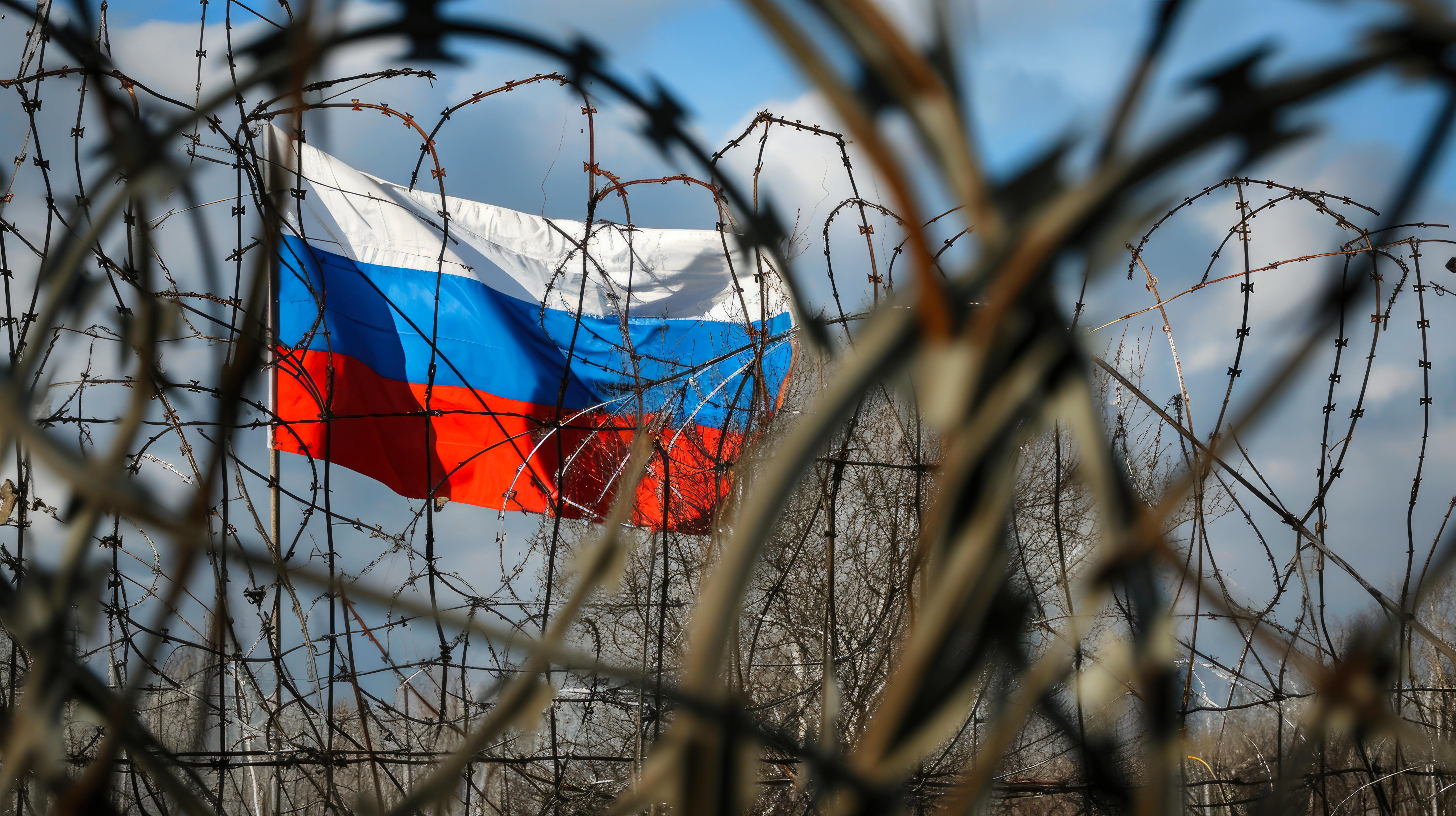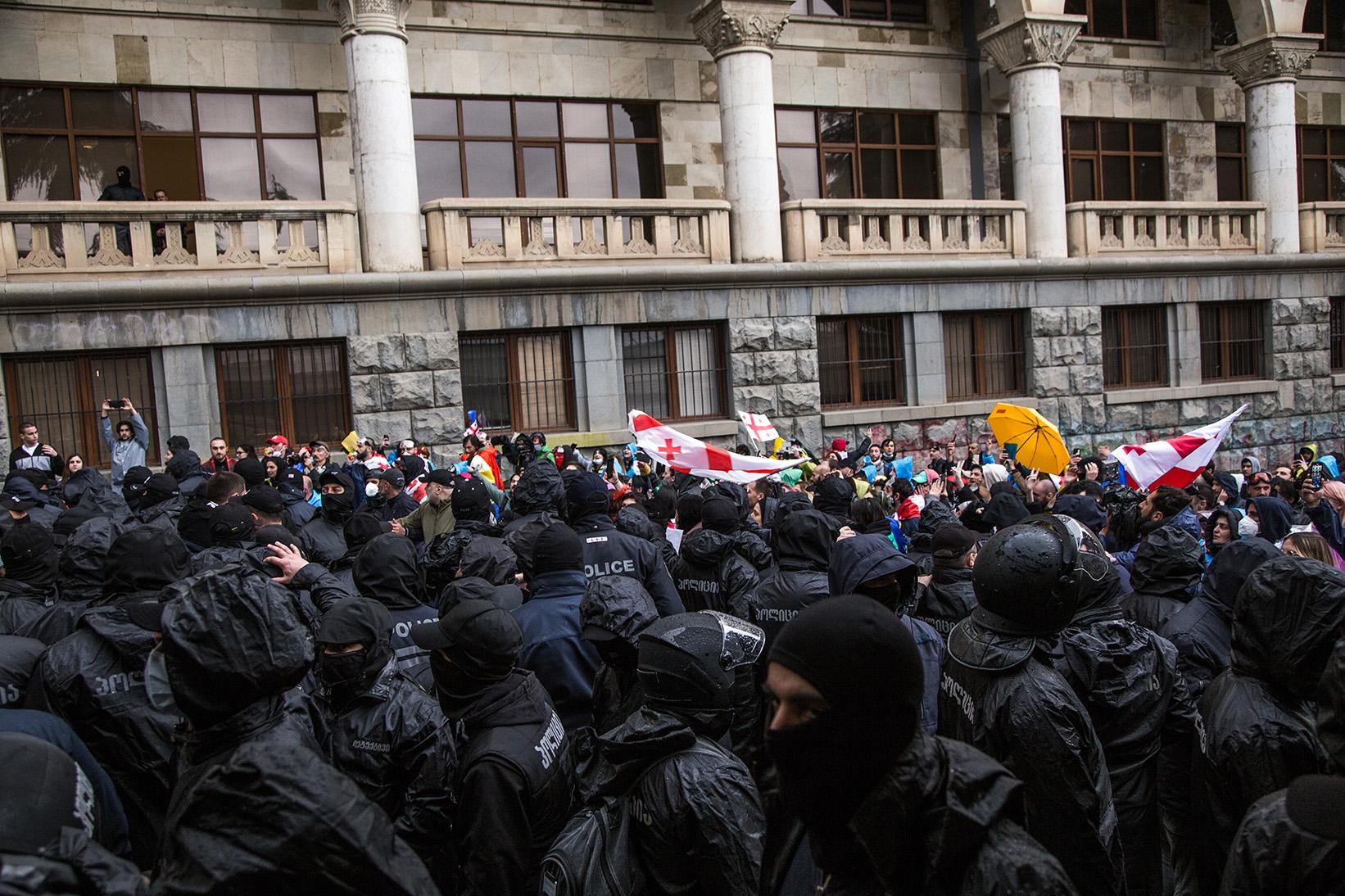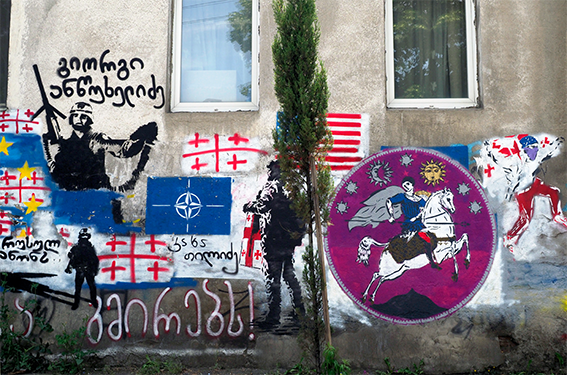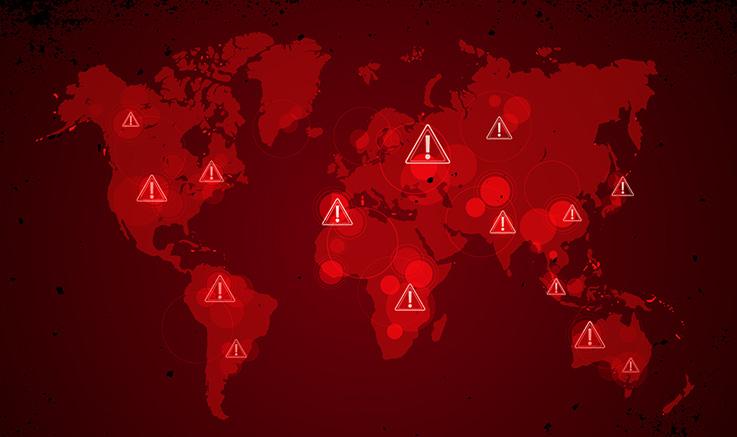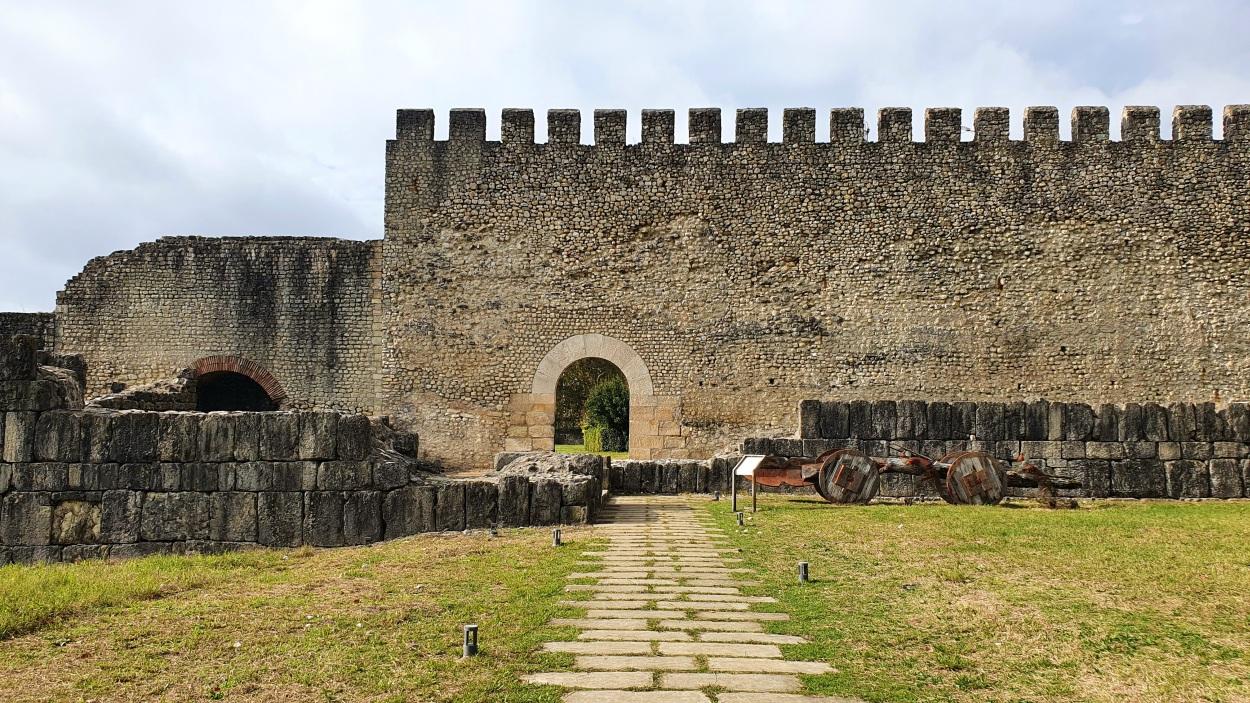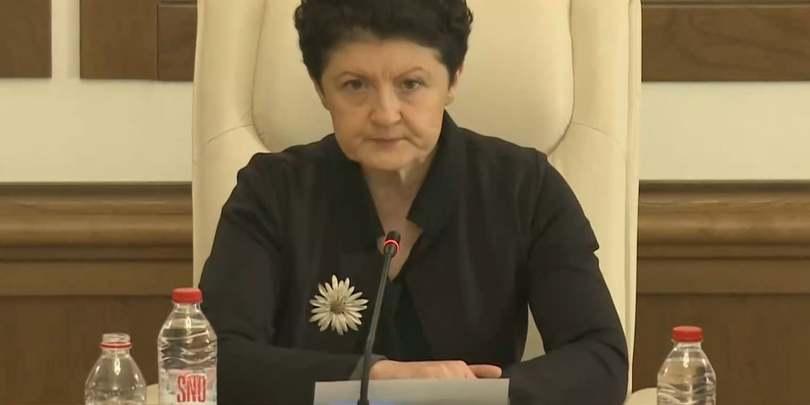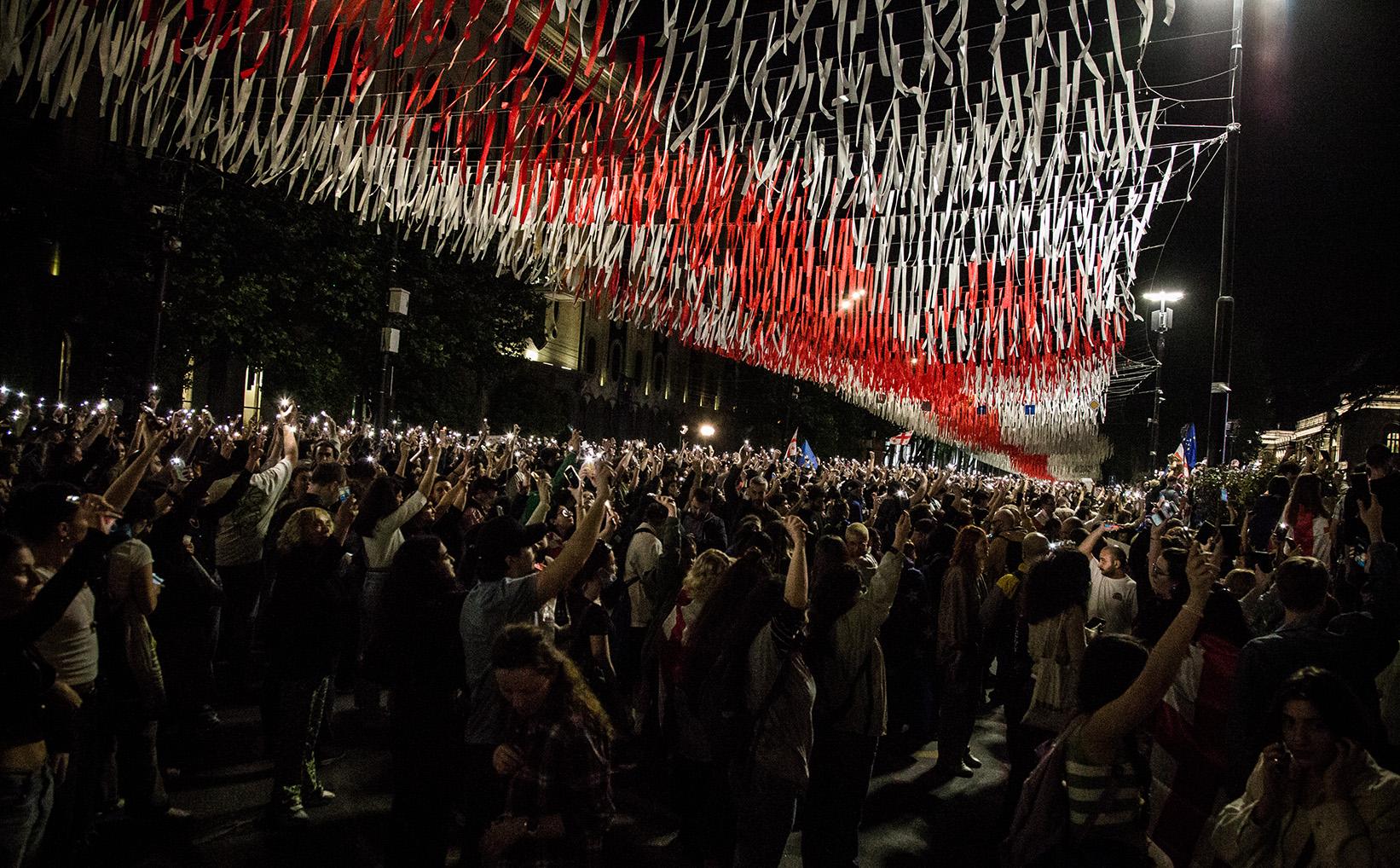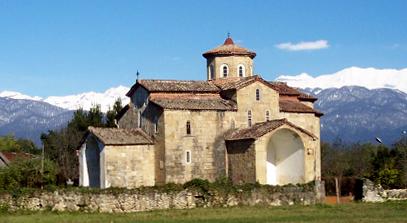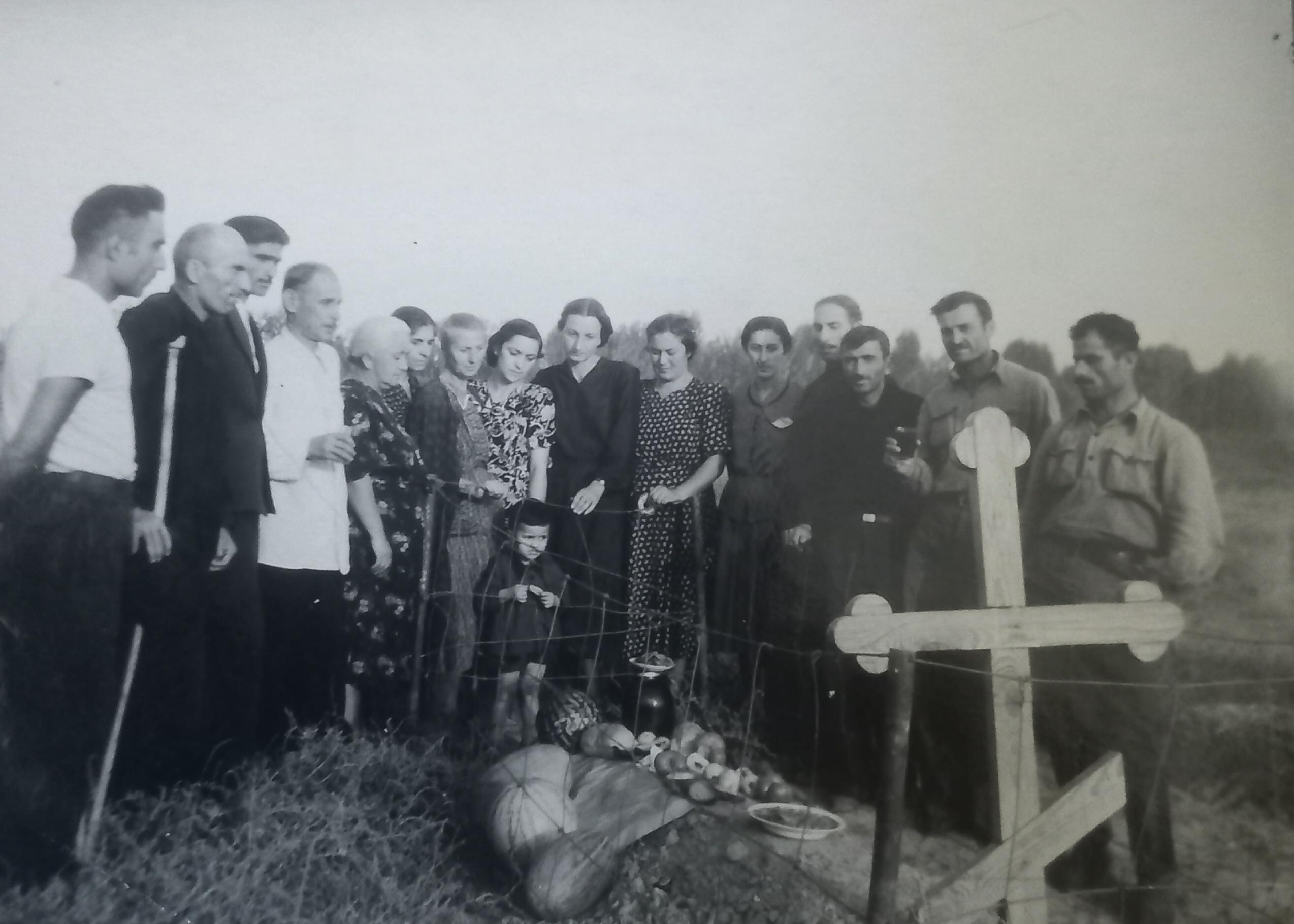Author : Keti Kurdovanidze

Over the past few months, the political process in Georgia has slowed down and become increasingly fragmented. While earlier concerns were raised that the country was drifting towards authoritarianism and dismantling formal democracy, it is now evident that the regime has skilfully adopted an authoritarian framework and tightened its control mechanisms significantly. It has intensified its persecution of independent media, escalated violence against activists, demonised political opponents, introduced legislation to ban political parties and launched Bolshevik-style purges within the civil service. These developments, marked by unprecedented fines and a host of previously unthinkable anti-democratic measures, indicate that the regime has entered an active phase of establishing a dictatorship.
However, the emergence of a dictatorship in our country did not follow its classic patterns, such as a military or constitutional coup, the abolition of free media, the banning of political parties or the deification of an authoritarian leader. Instead, our reality has once again demonstrated that authoritarianism can take root more subtly, even in the name of democracy itself. This time, the Russian government did not enter Georgia with a "Russian boot" and tanks—it came under the guise of the so-called Law on Transparency and proclaimed: “From now on, I will defend the sovereignty and peace of the country”. Paradoxically, many believed the absurd claim that the emissaries of the occupier and Georgia’s greatest enemy would somehow act in the country’s best interests. What should we attribute this to? Well-orchestrated propaganda? Or the naivety and infantilism of those who, like Little Red Riding Hood, believe the wolf is a caring grandmother, and like Buratino[1], expect gold coins planted in the Field of Wonders on the advice of Basilio the Cat and Alice the Fox to magically turn into treasure overnight, without any effort? Most likely, it’s both.
With characteristic impudence, the current regime in Georgia assures us daily that the adoption of the foreign agents law was essential for the country’s survival. Meanwhile, the protest movement that has erupted in all major Georgian cities — with the youth taking to the streets and growing public resistance — is dismissed as nothing more than the whims of extremist fringe groups and opposition political parties. According to the regime, these groups are allegedly directed and funded by the so-called ‘Global War Party’, now rebranded by Irakli Kobakhidze[2] as the ‘Deep State’. In this narrative, anyone who raises their voice and dares to disagree with the ruling party is labelled an agent, a traitor or a ‘Nazi[3]‘. In this way, the regime lumps together all those it seeks to punish, silence or expel from the political sphere, and even from the country itself.
The regime’s objectives are carried out with enviable loyalty and discipline by law enforcement agencies, who execute their assigned tasks with striking coordination and precision. The police and special forces suppress protests; the Security Service raids the homes of particularly active individuals and supervises the search process; the prosecutor’s office fabricates charges; and the court, now a puppet of the regime, delivers harsh sentences. This is how fines, early-morning ‘visits’ from law enforcement and the futile exercise of ‘reading the Bible to the wolf’ in courtrooms have gradually become part of our daily reality. What we considered to be the stuff of dystopian fiction just a year ago is now a common occurrence. Thus, the Russian model of dictatorship — justified in the name of democracy, peace, sovereignty, and national values, and reinforced by ‘transparency laws’ — has quietly crept in and taken hold.
The starting point of this fateful process can be traced to the spring of 2024, when Bidzina Ivanishvili chose to stop avoiding public outrage, finally removed his democratic mask, and proudly informed the public from Rustaveli Avenue about the future he had in store for the country. A year later, he has dutifully delivered on all those ominous promises, unlike the pledges made during the 2012 elections, which the oligarch later dismissed as a joke, particularly since no one has held him accountable for them in the last 12 years. At that time, society chose to remain silent and take no action. Now, however, when it has expressed its will to protest the current situation, it is being silenced by force. In a country that has turned into a dense grove, it is impossible to make the voice of freedom heard. In short, freedom in Georgia has tragically given way to immaturity, conformity, greed, selfishness, mythical thinking, a hatred of progress and barbaric traditions.
A post-Soviet republic that was successful and exemplary just a decade ago has now turned into a wild, dark grove, reminiscent of the setting of one of Akutagawa’s experimental stories. Evidence of this can be seen in the fact that key figures in all four branches of the country’s government (including the media) are subject to sanctions from the US and EU, and the two-party American Megobari Act is undergoing final procedures in Congress.
I mentioned Akutagawa’s ‘In a Grove’ not only for the sake of allusion, but also because no story expresses the current political and social situation in Georgia more accurately than this one, with its central question: who killed the samurai in the grove? This question is asked many times throughout the text, but it is merely formal, and the answer has no significance for either the context or the text. It is only of interest to an inexperienced reader who reads this story with the pathos of the detective genre.
In our reality, we often hear questions like these: Who killed freedom? Who is taking away our independence? Who is to blame? There is no exact answer because the only fact is that freedom has been killed. All other narratives are vague, mutually exclusive and do not establish the truth. The reasons, motives, and perpetrators are seen through the eyes of different groups in society and are full of speculation, manipulation, and interpretation. No one bears full responsibility for its murder.
Akutagawa’s story features seven narrators, each of whom recounts a different version of the murder. The first narrator is a woodcutter, a passive citizen. He tells the story of the murder as a simple observer. Although he did not directly participate in the killing of the samurai, he nevertheless encountered a tragic outcome. The narrator focuses on the signs, not searching for meanings; he tells the story of the murder without concern and is completely emotionally detached. Of all the witnesses’ testimonies, it is his account that is the most terrifying — not in terms of the facts, but emotionally. Such people live among us. At first glance, they do not take part in any raids or illegal reprisals; they simply observe the extreme arrogance of the authorities, the Russification of the country, the torture of people, and the destruction of democratic institutions. Yet they continue to play the role of silent observers.
The second narrator is a wandering monk and a moral authority who hides in the shadows of silence. Historically, he has been responsible for protecting purity and truth, but he is now unable to gather his thoughts because he has seen nothing with his own eyes. Therefore, he can only offer formal sympathy and moral statements. He is reminiscent of those Georgian intellectuals, artists, and church representatives who are fully aware of what truth is, that violence is unacceptable, and that there is disorder and injustice around them. However, they have renounced their moral responsibility, preferring to remain silent or indiscriminately criticise both sides — ‘Violence is bad, but...’ — thereby only strengthening the brutal regime.
The third narrator of the text is the ‘hōmen’, who is a representative of the law enforcement system. His monologue contains a preconceived accusation and a biased interpretation of the evidence. The hōmen says, ‘I apologise for interfering in this manner, but is an investigation necessary?’ This is an example of what is known as the automatic legalisation of guilt, which indicates a predetermined outcome in the judicial system. The narrator recalls a past case and justifies the suspect’s guilt based on public rumours. This bears a striking resemblance to the current situation in Georgia, where the regime uses propaganda media to disseminate biased information and make absurd accusations, thereby making it easier for the court to hand down verdicts favourable to the government. The Georgian court has become a farce. It hands down illegal verdicts one after another through the biased interpretation of charges and formal investigations, pressure, and false witnesses. Having become an instrument of the regime, it completely ignores the moral values of the law.
The monologue of the fourth narrator, an elderly woman, about her murdered son-in-law and her missing daughter, mirrors the emotional response of patriarchal Georgian society — it is sincere, yet subjective and disoriented. The old woman is not only shaken by family grief, but also by historical helplessness. She represents a generation that failed to protect the future, and so she appeals to a transcendent power, God, to ensure justice. In the context of modern Georgia, her voice represents the despair of parents who can no longer fight against the imprisonment, violence, injustice, and moral destruction faced by their children, whether in court or through protest.
The fifth narrator, Tajōmaru, is a robber who confesses to the murder and raping of a woman yet feels no remorse. His narrative is the longest and most daring. He killed a samurai and raped a woman, but he could not have acted otherwise. Throughout his monologue, this shameless robber presents himself as a victim of circumstance. He can be seen as an allegory for the regime that has established itself in Georgia — a system of power that openly claims that changes in foreign policy, the destruction of political opponents, and violence and imprisonment serve a higher purpose: preserving peace and sovereignty. According to this regime, the victim is itself, not the people it persecutes. The political crisis was caused by interference from external forces, such as Western propaganda, opposition parties, civil society, and the free media. The regime merely protected the country from war and chaos. Like the bandit Tajōmaru, the regime is trying to rewrite history as if there were no alternatives to its decisions, authoritarianism, cruelty, or ‘flirting’ with Russia.
The raped woman is the sixth narrator of the story. A bandit rapes her in front of her husband. Like the Georgian opposition, she is deprived of her will and her rights. Unfortunately, she also loses her ability to reason. Although she is suspicious, she still follows the bandit into a dense grove and attempts to defend herself, but she fails. On the one hand, she is a fighter; on the other, she is submissive. The Georgian opposition complains that democracy is over, that the people’s votes have been stolen and that the elections have been rigged. However, it does not recognise its own fault in this and accordingly has no self-reflection. Like the raped woman, the opposition’s narrative is emotional and contradictory. It is unable to articulate its goals or justify its actions, cannot take responsibility, and struggles to understand its defeat, constantly manipulating its own victimhood as a result.
The most tragic is the spirit of the dead samurai speaking through a medium. He says, ‘It was me; I killed myself.’ This illustrates the absurdity of establishing the truth when the truth contradicts the narratives of all the participants. The samurai, a symbol of honour, dignity, and justice, cannot prevail against the power of the system. This demonstrates that in the fight against the system, the sword of truth only has temporary power because it is rooted in a fractured and contradictory society.
This experiment by Akutagawa can be considered a metaphor for the current political situation, albeit a conditional one. The political chaos and fragmented truth in Georgia have led to public nihilism and mistrust, and reality is perceived as a set of stories motivated by party interests. Finding a way forward is akin to finding a path through a dense forest.
And yet, who killed freedom? There is only one answer to this question: We all bear our share of the responsibility.
[1] Buratino is the main character in a Russian children’s story by Alexei Tolstoy, based on The Adventures of Pinocchio. Like Pinocchio, Buratino is a wooden puppet whose naïveté leads him into various misadventures.
[2] Irakli Kobakhidze is the Prime Minister of Georgia and Chairman of the ruling Georgian Dream party. A central figure in the country’s current political landscape, he is known for his hardline rhetoric and strong defence of government policies, including the controversial ‘foreign agents’ law and narratives targeting civil society and opposition groups.
[3] Nazi is a nickname used for representatives of the United National Movement Party (no reference to German Nazi)
